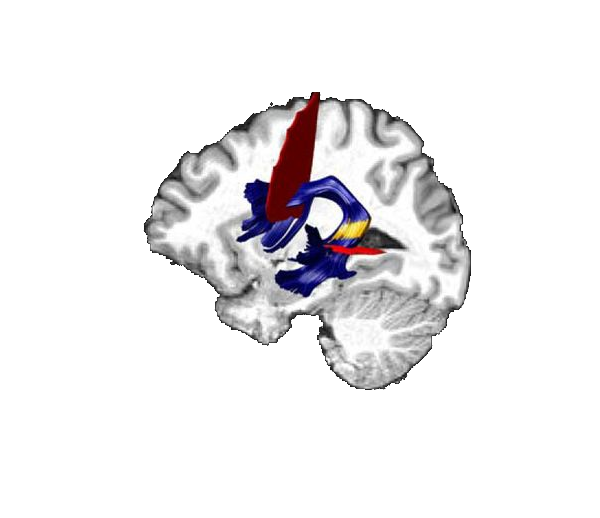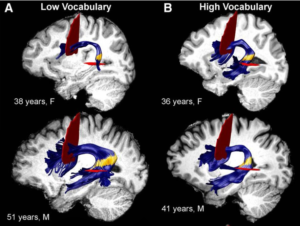Vocabulary knowledge exhibits relatively limited decline with age in comparison to many other cognitive functions. We examined whether this relative resilience to aging could be due to the organization of the arcuate fasciculus, a fiber tract where white matter microstructure predicts reading skill development. We show in the Journal of Neuroscience that arcuate fasciculus morphology (region in yellow below) predicted vocabulary knowledge across the lifespan in 106 adults (aged 20-88 years), despite evidence that arcuate microstructure declined with age and predicted age-related slowing of cognitive processing speed. Importantly, the size and shape of the arcuate fasciculus appeared to contribute to its relationship with vocabulary knowledge. One explanation for these results is that developmental organization of the arcuate fasciculus affects acquisition, storage, and access of word knowledge. Organization of fiber tracts, like organization of road systems that affect travel, may be relatively resilient to the effects of aging.
Vocabulary Knowledge is Relatively Resilient to Aging: Due Arcuate Fasciculus Patterning?

